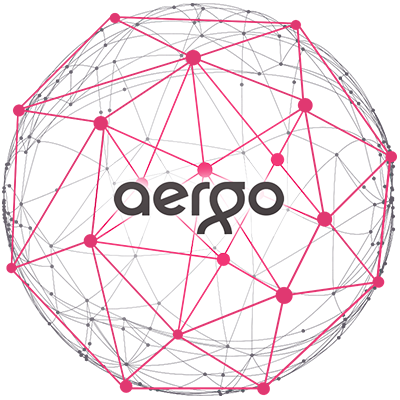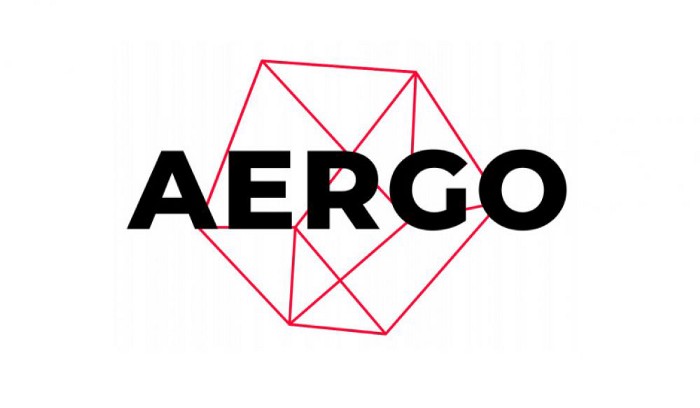On July 08, 2021, an article about Energy Efficiency of AERGO appeared on Aergo’s official Medium page.
You can familiarize yourself with the content of this article on our website below:
Introduction: Blockchain Technology Exacerbate Climate Change?

It is evident that the utilization of energy has become a focal, social and political issue that has become a topic of discussion for the last half-century and has expanded well into the 21st century. Recently, there has been massive argument surrounding the efficiency of blockchain and how/if Proof-Of-Work exacerbates an already fragile climate. Blockchain has unfortunately utilized the same amount of energy as 159 individual nations; from a global perspective, that is roughly 75% of all nations that exist on the Earth: a staggering statistic indeed.
AERGO is looking to solve this issue through its Delegated-Proof-Of-Stake consensus model. AERGO’s blockchain operability isn’t accompanied by centralized mining farms that contribute to energy inefficiencies and non-friendly environmental tactics to create blocks. AERGO utilizes a Delegated-Proof-Of-Stake model that mandates block-producers become net-carbon zero and will consistently give preference the corporate entities that perpetuate this vision.
The method of centralized mining farms to mine Bitcoin has become a prominent topic of discussion, as mining is the consequence of this blossoming technology. As the evolution of blockchain has expanded tremendously in the last five years, energy consumption conceived by competing miners and mining farms has also increased as Bitcoin reaches inconceivable prices, which has drawn entities to garner an insatiable desire to mine Bitcoin in large quantities for massive profits. Miners are unfortunately at the heart of this issue that must be resolved to combat climate change.
Miners: The Life’s-Blood Of Blockchain Inefficient Energy Output

During the first few years of Bitcoin’s life, its value against the dollar was inherently worthless. Over the last eight years, Bitcoin and cryptocurrencies valuation as a whole, has skyrocketed tremendously, thus leading larger groups of centralized entities to build mining farms that utilize immense amounts of energy that has lead to this topic of discussion. Imagine, for a second, how much energy output it must take for tens of thousands of miners to solve complex mathematical equations to garner Bitcoin. The underlying technology, blockchain, unfortunately perpetuates this notion because the cost of running a blockchain is passed on through transaction fees. Fortunately, environmentally friendly blockchain entities are emerging such as the Crypto Climate Accord, which AERGO has joined and how plans to become a net-zero carbon blockchain through the transition of net-zero carbon mining through its DPOS consensus paradigm.
Green Energy Blockchain Mining: Proof-Of-Work vs. Proof Of Stake

There are many methods on how blockchain mining can become environmentally friendly and practically efficient. Solar panels and allowing for mining via the cloud (such as what company Genesis Mining does) are efficient fixes to solve the crypto climate dilemma. Energy efficient blockchain systems have now come to the forefront by eliminating the competition of Proof-Of-Work consensus models by implementing Proof-Of-Stake/Delegated Proof-Of-Stake models like AERGO.
In Proof-Of-Work consensus algorithms such as Bitcoin and Ethereum, miners compete with each-other to problem-solve at a faster rate than the other to mine blocks. A plethora of machines operating consistently, competing with one another, with lead to a plethora of problems, and energy consumption highlights such a notion. In Proof-Of-Stake, “validators” not “miners” validate the network based on the algorithm of the amount of cryptocurrency that is “staked” or provided by the validator to the network. It is important to note that Ethereum is slowly transitioning to a proof-of-stake paradigm.
AERGO’S Environmental Idealism Into Vision Through DPOS: A Clean Energy Representative Democracy.

Energy efficiency is a major talking-point within the blockchain community, and Proof-Of-Stake models are at the forefront of this growing discussion. Delegated Proof-Of-Stake, however, embodies not only the notions of efficiency and an environmentally conscious consensus model, but perpetuates the concept of representative democracy as well. AERGO envisioned a concept for their blockchain that successfully amalgamated Proof-Of-Work with with the Byzantine Agreement consensus model. In essence, a Byzantine Agreement model guarantees instant block finality while requiring a set of parties to agree on a value even if one of the parties are corrupted. AERGO envisioned a representative democracy that is clean energy and representative to the populace of the network; a community that thrives allows a project to survive.
AERGO emphasizes the right of generating blocks to set block producers, while allowing a reorganization of these block producers through a finite range. By following a Proof-Of-Stake model with only a limited amount of block producers, AERGO addresses multiple performance issues. AERGO prevents an excessive amount of energy consumption from occurring from an ever-growing amount of block producers like what occurs in a Proof-Of-Work system such as Bitcoin. Simultaneously, AERGO gives a voice to its token holders, an important value proposition in any Proof-Of-Stake network; it gives token holders a voice in their investment and prevents them from staying on the outskirts as voiceless entities who just bought the token. Block producers must produces blocks in the allotted time given and AERGO stakers can freely vote for numerous different block producers (though they can choose one per-day to avoid an excessively dynamic and unpredictable environment for block producers). AERGO has made an important promise to become a net-zero carbon blockchain producer by 2030, and the company has the resources and partnerships to create such a vision.
Conclusion: AERGO’S 21st Century Mining: Representative Equity, Efficiency And Environmentally Friendly: The Three E’s Of AERGO

It is evident that Delegated-Proof-Of-Stake systems perpetuate representative democracy, transparent republicanism, and eco-friendly blockchains. These paradigm of virtues must accompany the vision’s of blockchain companies if we’re to hope for any type of mass adoption. Companies like AERGO, who have recently joined the Crypto Climate Accord (which is inspired by the Paris Climate Accord), will be on the forefront of this idealism through further collaboration with the Accord, providing preference to net-zero carbon companies, and a Delegated-Proof-Of-Stake paradigm that eliminates the competition of Proof-Of-Work. This is the AERGO vision.
If you have an interest in becoming AERGO’s Block Producer, please email hello@aergo.io
Helpful Links:
Disclaimer: Cryptocurrency investing and gambling requires substantial risk, do not invest or gamble more than you can afford to lose! I am not a financial adviser and I am not responsible for any of your trades. I am an investor of Icon Coin and the information within this article represent my own thoughts and opinions. It is incumbent that you always do your own research before investing in anything!